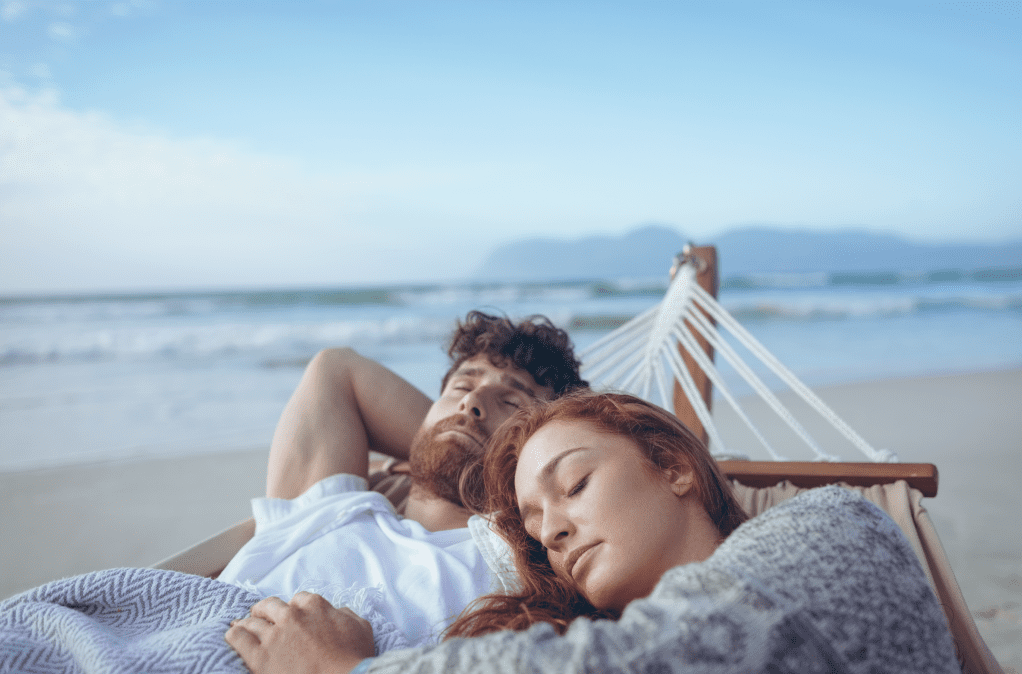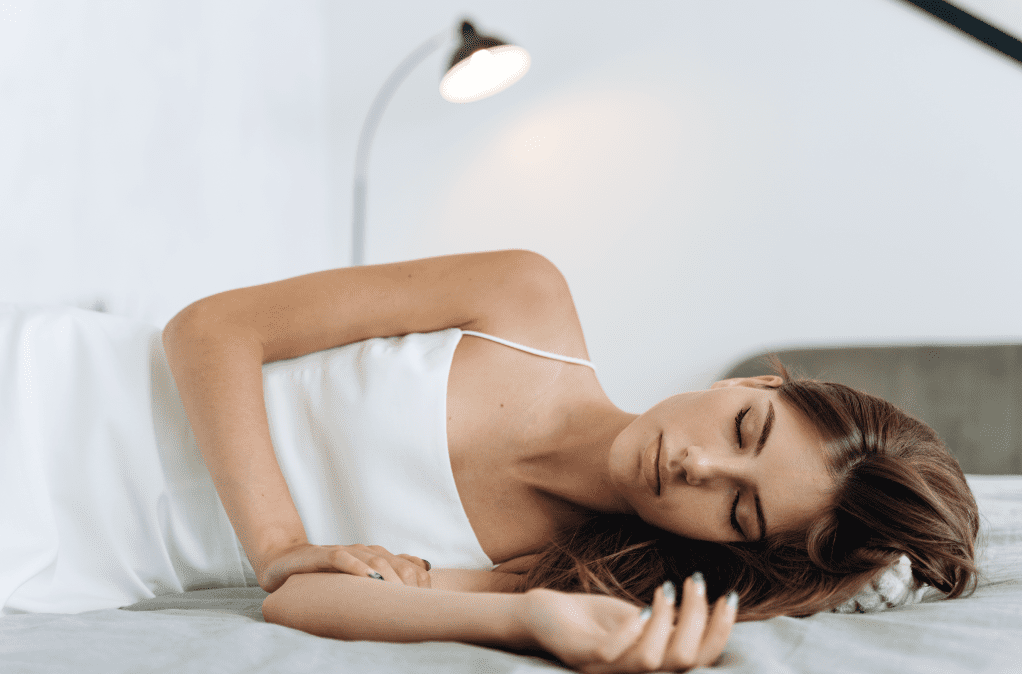How to get better sleep? Sleep is the great antidote to stress, anxiety, fatigue and other enemies of good health. Shakespeare called it the “balm of hurt minds” and the “chief nourisher in life’s feast.” Sleep helps your body and brain function properly. A good night’s sleep can improve learning ability, memory, decision making, and creativity. On the other hand, insufficient sleep has been linked to a higher risk of diabetes, heart disease, and obesity.
Occasionally, though, many people find it hard to fall asleep when they need to, or they suffer through periods of wakefulness in the middle of the night. Serious medicines have been developed for people with chronic insomnia and other long-lasting conditions that prevent them from getting the rest they need. But for the majority of people, sleep problems are much less frequent and can be handled with milder treatments based on a wide range of natural and safe products.
The National Institutes of Health has a good overview of the importance of sleep, along with some good tips for getting the proper amount of sleep, here:
National Institute of Aging: A Good Night Sleep
Six soothing supplements that will help you get better sleep
Natural sleep aids that are sold over the counter contain a wide variety of ingredients, and these six stand out as being effective and safe for most people:
Melatonin
Valerian root
Magnesium
Lavender
Passionflower
Glycine
Here’s a breakdown of the six common ingredients and what each one contributes to improved sleeping patterns:
Melatonin
A hormone produced naturally in the human body, melatonin sends signals to the brain that it’s time to fall asleep. The time of day controls this hormone’s cycle of production and release, with levels rising naturally in the evening and falling in the morning. This has made melatonin supplements a popular sleep aid, especially when the body’s cycle is disrupted, such as with jet lag. Several studies report that melatonin improves daytime sleep quality and duration, which comes in handy for workers whose schedules require them to sleep during the day and remain active at night.
Melatonin may improve the sleep quality of people with sleep disorders because it appears to reduce the time they need to fall asleep and increase the total amount of sleep time. Studies have shown that people enjoy the beneficial effects of melatonin by taking between 3 milligrams and 10 milligrams before bedtime. Side effects seem to be relatively minor, but melatonin is not recommended for people who are pregnant or nursing because of limited research on its safety and effectiveness.
Valerian root
This herb, native to Asia and Europe, is one of the most commonly used sleep-promoting supplements in the United States and Europe. It is also commonly used as a natural treatment for symptoms of anxiety and depression. Menopausal and postmenopausal women have seen their sleep quality and sleep disorder symptoms improve after taking valerian, according to one review. Another study found that taking 530 milligrams of valerian per night for 30 days led to significant improvements in sleep quality, latency, and duration compared to a placebo in people who had undergone heart surgery. The short-term use of valerian root appears to be safe for adults, with minor and infrequent side effects.
Magnesium
This is a mineral involved in hundreds of processes in the human body, including brain function and heart health. It may help quiet the mind and body, making it easier for people to fall asleep. Studies show that magnesium’s relaxing effect may be due to its ability to regulate melatonin production. It is also known to relax muscles and induce sleep. Many forms of magnesium supplements are available, including some that combine magnesium with other sleep-promoting ingredients such as glycine or melatonin.
One study found that a combination of magnesium, melatonin, and vitamin B was effective in treating insomnia regardless of the cause. Magnesium also appears to increase levels of gamma aminobutyric acid (known as GABA), a brain messenger with calming effects. Some studies suggest that low levels of magnesium may be linked to troubled sleep and insomnia, while increasing magnesium intake may optimize the quality and quantity of sleep. Most people should limit their daily intake of magnesium to 350 milligrams unless prescribed by a doctor.
Lavender
This aromatic plant may promote healthful sleep more effectively through the nose than through the mouth because its soothing fragrance is believed to enhance sleep. Some studies suggest that simply smelling lavender oil shortly before bedtime may be enough to improve sleep quality in those with mild insomnia.
Another study of older adults with dementia also suggests that lavender aromatherapy is effective at improving sleep disturbance symptoms. Participants’ total sleep time increased, and fewer people woke up very early and found themselves unable to get back to sleep. Although lavender aromatherapy is considered safe, the oral intake of lavender has been linked to nausea, belching, and diarrhea in some cases. Essential oils are intended for aromatherapy, not oral ingestion.
Passionflower
Also known as Passiflora incarnata or maypop, passionflower is a popular herbal remedy for insomnia. The species linked to sleep improvements are native to North America. Passionflower’s sleep-promoting effects have been demonstrated in animal studies, but its effects on humans appear to depend on the form in which it is consumed.
One older study showed a subjective improvement in sleep quality in people who drank tea made from passionflower. In a more recent study, people with insomnia saw significant improvements in certain sleep parameters compared to those who took a placebo. Those participants reported improvements in total sleep time, sleep efficiency, and wake time after sleep onset. Passionflower intake is generally considered to be safe for adults, it seems that passionflower may provide more benefits when consumed as a tea or extract as opposed to a supplement.
Glycine
This is an amino acid that plays an important role in the nervous system and may also help improve sleep. Glycine is thought to act in part by lowering body temperature at bedtime, signaling that it’s time to sleep. In one study, patients who took glycine reported less fatigue in the morning along with an improvement in their liveliness. Other students have shown that people who took glycine showed improved objective measures of sleep quality compared with a placebo group. Glycine supplements also helped participants fall asleep faster. Glycine has also been shown to improve daytime performance in individuals who are temporarily sleep-deprived.
Many popular nutritional supplements that are designed to promote better sleep contain some or all of these six ingredients in various blends, but not all supplements are created equal. Exceptional companies such as MyPEAK Supplements boast all-natural ingredient lists, along with the promise that their products are fully vegan and non-GMO. MyPEAK is also based on physician-formulated and lab-tested blends that are manufactured in the USA in an FDA registered facility.
More information about sleeping aids can be found here:
Harvard: 8 secrets to a good night sleep
Healthline: 17 tips to sleep better


Other supplements can contribute to getting better sleep.
There are many additional sleep-promoting supplements on the market. The following supplements may be beneficial for sleep and are undergoing scientific tests to determine how effective they really are:
Tryptophan. One review of four studies found that taking at least 1 gram of tryptophan per day could help improve sleep quality and reduce the amount of time participants spent awake in the middle of the night.
Ginkgo biloba. According to older studies, consuming around 240 mg of this natural herb 30–60 minutes before bed may help reduce stress, enhance relaxation, and promote sleep. Animal studies are also promising.
L-theanine. Consuming a daily supplement containing up to 200 mg of this amino acid may help improve sleep and relaxation. Animal studies suggest it may be more effective when combined with GABA or magnesium.
Kava. This plant has also been linked to sleep-promoting effects in some studies. It originates from the South Pacific islands, and its root is traditionally prepared as a tea. It can also be consumed in supplement form.
Ten simple suggestions for getting better sleep on a regular basis
Beyond the use of nutritional supplements, people with sleeping issues may also find help by following the advice of researchers who study sleep patterns to determine what works and what doesn’t work when it comes to getting the rest we all need. Here are some of their more common suggestions:
Follow a regular sleep schedule. Go to sleep and get up at the same time each day, even on weekends or when you are traveling.
Avoid napping in the late afternoon or evening, if you can. Naps may keep you awake at night.
Develop a bedtime routine. Take time to relax before bedtime each night. Some people read a book, listen to soothing music, or soak in a warm bath.
Try not to watch television or use your computer, cell phone, or tablet in the bedroom. The light from these devices may make it difficult for you to fall asleep. And alarming or unsettling shows or movies, like horror movies, may keep you awake.
Keep your bedroom at a comfortable temperature, not too hot or too cold, and as quiet as possible.
Use low lighting in the evenings and as you prepare for bed.
Exercise at regular times each day but not within 3 hours of your bedtime.
Avoid eating large meals close to bedtime—they can keep you awake.
Stay away from caffeine late in the day. Caffeine (found in coffee, tea, soda, and chocolate) can keep you awake.
Don’t rely on a “nightcap.” Alcohol won’t help you sleep, and even small amounts make it harder to stay asleep.
If you still need more suggestions, check out this site
National Institute On Aging: Good Night Sleep


How to get the better sleep you’ve been dreaming of
The bottom line for most of us who have occasional problems getting to sleep or staying asleep is to experiment with the various natural sleeping aids mentioned in this story, and to combine those with the sensible advice from people who study sleeping habits. Once you’ve found the right combination that works for you, all that’s left is to turn off the lights and enjoy a good night’s sleep.
Disclaimer
Important Note: The information contained in this article is for general informational purposes only, and should not be construed as health or medical advice, nor is it intended to diagnose, prevent, treat, or cure any disease or health condition. Before embarking on any diet or program of nutritional supplementation, it is advisable to consult your healthcare professional in order to determine its safety and probable efficacy in terms of your individual state of health.
Table of Contents



